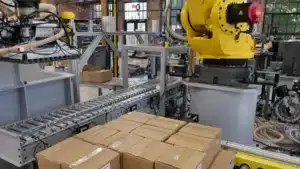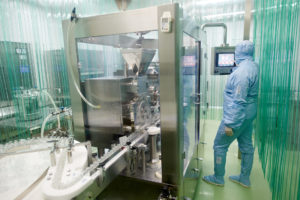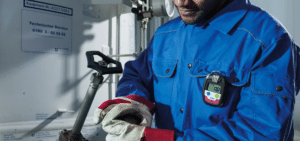
How Cross Addresses Key Challenges Through Integration
Many facilities operate on tight budgets with older equipment. That means that often, these plants are relying on consolidated PLCs with SCADA systems layered on top. While this set-up may be working for now, there are several questions that should be considered when thinking about the future of your operations:
- Are your older PLCs becoming increasingly difficult to support or source parts for?
- Is a good portion of maintenance dedicated to supporting a variety of automation platforms across the plant?
- Is your facility having to do more with less for the foreseeable future?
- Does your plant have a clear modernization roadmap? Or are you forced to be reactive?
We’ve heard of many of these concerns from process facilities of all sizes. While they may seem like daunting issues, there are approaches that can help. At Cross, we offer a phased approach to integrating ABB Distributed Control Systems. This allows for gradual replacement of existing PLCs and discrete automation systems without the need for a complete rip and replace (and the accompanying extended downtime).
Implementing a Phased Integration Approach
 One potential strategy to modernize legacy systems is transitioning aging PLCs to ABB’s Freelance nodes. This minimally invasive initial step provides immediate benefits while also setting the stage for future upgrades to full DCSs like ABB’s 800xA system, optimizing plant-wide operations. Further, this method allows for minimal disruption to existing processes or automations. As existing field wiring can be used, this becomes a straightforward drop-in replacement.
One potential strategy to modernize legacy systems is transitioning aging PLCs to ABB’s Freelance nodes. This minimally invasive initial step provides immediate benefits while also setting the stage for future upgrades to full DCSs like ABB’s 800xA system, optimizing plant-wide operations. Further, this method allows for minimal disruption to existing processes or automations. As existing field wiring can be used, this becomes a straightforward drop-in replacement.
Custom I/O cables and interface modules enable the side-by-side operation of PLCs and ABB nodes, ensuring a smooth transition. This phased approach minimizes downtime while allowing for changes to be made while processes are running. Unlike traditional PLC systems, these phased implementations don’t require extensive scheduled shutdowns.
Enhancing Efficiency and Reducing Risk
Switching to Distributed Control Systems provides many benefits for process operations relying on PLC automation. By integrating DCSs, you eliminate “automation islands” where multiple PLCs are required to run independently. Instead, you gain a centralized system that is able to simplify management and maintenance. Moving to integrate Distributed Control Systems not only reduces future downtime but also enhances the overall efficiency of your operations. Additionally, it allows for greater future scalability without the need to implement additional islands of automation to keep pace.
A common issue facing many plants is the loss of knowledge bases. What do you do if the only person who knows how to program and maintain the PLCs managing a specific process leaves or retires? In that case, operations may be forced into involuntary adaptation, causing significantly more disruption than a planned migration. Implementing a phased approach to DCS migration is a far more stable means of enhancing efficiency and reducing risk.
Risk can be further reduced with the customizable redundancy options offered by ABB DCSs. This allows you to tailor the level of risk and downtime cost to the specific needs of your facility. Flexibility like this ensures that your system remains reliable even as your operations continue to evolve and modernize.
Optimizing Plant Operations With Cross Company









